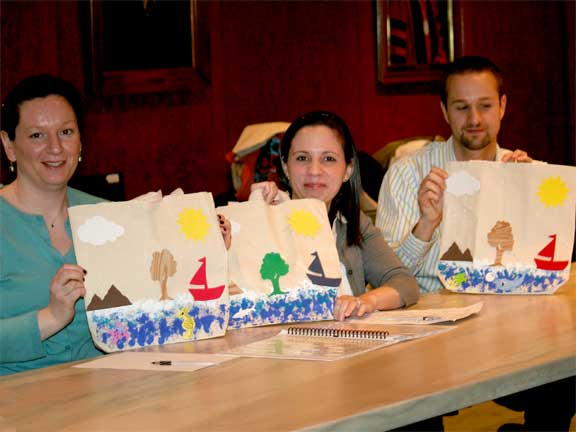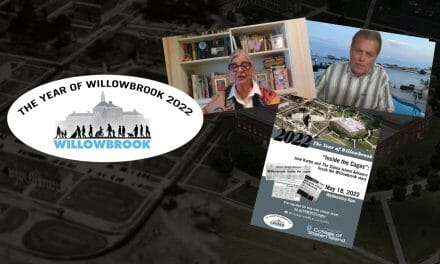Students from the College of Staten Island’s Energy and Clean Air Education Program had a chance to show two executives from Consolidated Edison how this innovative program works and why it is effective.
The Program looks to provide a greater understanding of environmental science among school children by first educating their teachers in environmental science, providing them with scientifically correct materials that they can implement in the instruction of their own students. It also supplies them with an adequate amount of science so that they will be able to convey the scientific principles to their students.
ConEd’s Senior Vice President, Customer Operations, Marilyn Caselli noted, “This is a remarkable platform that’s so robust when it comes to saving the environment,” pointing to the importance of education in creating a healthier attitude toward our planet.
Caselli, and the company’s Director of Public Affairs, Mark Irving, met with the Director of CSI’s Center for Environmental Science (CES), Dr. Donna Gerstle; Energy and Clean Air Education Program Webmaster, Caitlin Nichols, who is also pursuing her PhD in Environmental Science at the CUNY Graduate Center; and three current Program students, who are seeking Master of Science degrees in Environmental Science, Evelyn Powers, Kristen Barshatzky, and James Bunkiewicz.
Thanking ConEd for the $12.5K in funding that it has already provided for the Program, Dr. Gerstle emphasized the importance of the next generation reversing the effects of the previous generation ignoring the environment. “Our generation messed things up. We did everything wrong. [The next] generation, the little ones, this has got to be the norm for them….”
The ConEd executives learned more about the Program’s graduate-level course, ESC 602-Environmental Science for Elementary School Teachers, in which 90 percent of those enrolled in the class are engaged in classroom teaching; heard about some of the projects that ESC 602 students undertake; and viewed maps, generated by the CSI-based CUNY High-Performance Computational Center, depicting the loss of land mass on Staten Island if surrounding waters were to rise by 50 and 200 feet. In fact, Dr. Gerstle invited the attendees to locate their homes on the maps with pushpins to determine whether or not their homes would be underwater in each of the map’s scenarios.
Commenting on the significant effect that she has already witnessed as a student in the Program, Evelyn Powers said, “It’s great to see the switch that’s happened…of people taking environmental science and climate change and the impacts of the small things we do now and how that affects the future [seriously] and it’s great to see teachers taking that to the students.”
Dr. Gerstle summed up the long-term value of the program. “[The students in the Program] are just 17 people. They bring [this information] back to between 30 and 90 people everyday.” She also added that the students, in turn, bring this vital information back to their parents, as well.
The Center for Environmental Science (CES) was established at the College of Staten Island (CSI) in 1987, as a corollary to the Environmental Science Master’s Program. CES, located on Staten Island, is uniquely situated to foster and conduct research on a range of environmental issues. Past activities have included research on recycling of commercial waste, air pollution from industrial processes, as well as the impacts of air and water pollution, and proximity to landfills on human health. The mission of CES at CSI is to serve as a University and community focus for scientific, educational, and legal solutions to environmental problems.














